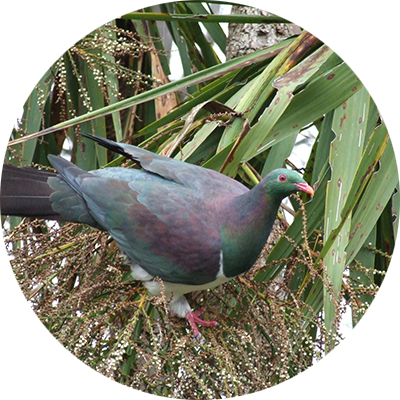
Making a meaningful impact on the lives of children and their families and communities.
Our vision for the Whanake Education Trust is:
“To foster innovation and excellence in early childhood education, so that all children benefit from participation”
The Early Learning Action Plan 2019-2029 is designed in part to respond to this Vision. Our goal is to work with others to make that Vision a reality.
The meaning of Whanake
We selected the word Whanake for our trust as it carries deep meaning for us. It is a word that both links back to the creation of Daisies Early Education and Care Centre through the cabbage trees (“Whanake”) that grow in front of Te Purapura (one of the Daisies whare) and the word we have long used to describe the group of oldest tamariki who are almost ready to transition to school.
Whanake is a word used by Māori in meaningful ways.
To move onwards, move upwards
Whanake tahi ana a Rātana rāua ko Tirikātene ki Pōneke: Rātana and Tirikātene went together to Wellington.
To grow, like a tree
E whanake ana te rākau nei: This tree is growing.
To spring up, develop
Nō ngā tau o te 1960 ka whanake mai ngā rōpū mautohe: Protest movements developed from the 1960s.
To rise, like the sun
Ka haere a Tū-rāhui ki waho whakahāereere ai i te tamaiti; kātahi ka titiro atu ki te rā e whanake ana i te huapae o Te Moana-nui-a-Kiwa: Tū-rāhui went outside to stroll about with the child. Then he looked at the sun rising on the horizon of the Pacific Ocean.
A cabbage tree, numerous around Johnsonville where we are based
Pēnā tonu te rere a te kererū i te wā e mau ana tēnā kākano, ā, tata noa ki te horonga o tērā kākano, o te Whanake: The flight of the Aotearoa-New Zealand pigeon is like that during the time that the fruit lasts and until just before the seeds of the cabbage tree falls. The word whanake is a reference to the cabbage tree, which are numerous around Johnsonville where we are based.
Our goal for the Whanake Education Trust is to make a meaningful impact, and in particular we believe there is a “wicked problem” that we must respond to collectively if we are to improve outcomes for our children. This can be described as follows:
We know that for many – but not all - children, participation in ECE can make a big difference to how well they succeed at school and indeed also their broader life outcomes beyond education. But why is this? The answer is likely twofold.
However we also know that this statement does not hold true for all children in all situations. For some children, participation in ECE seems to confer only modest benefits as they transition to school and beyond. For others it can be a bad experience. But why is this? The answer is likely twofold.
Firstly, quality of ECE. Research suggests that what makes the most difference are “settings characterised by purposeful and respectful interactions…, focused on extending children’s interests, capabilities and participation”.
Secondly, the child’s environment outside of the ECE setting. Good quality ECE seems to make the most difference to the wellbeing of children who are at a disadvantage at home due to poverty or other factors. Conversely, poor quality ECE can be detrimental
This suggests that if our aspiration is for New Zealand to be the best place in the world for children, we need to make sure that the children who need (quality) ECE the most, get it. Right now, we don’t believe that to be the case. Our goal for the Whanake Education Trust is to find ways to work with others to respond to this wicked problem.
Why did we decide to establish a new Trust entity?
While ECE in Aotearoa-New Zealand is better than in many other countries, there still remain some issues.
The Early Learning Action Plan 2019-2029 identifies some of these and proposes a range of actions. It is exciting to see the Action Plan reference the Government’s Child & Youth Wellbeing Strategy Vision that “Aotearoa-New Zealand is the best place in the world for children in young people”. This is truly ambitious, and ECE can play a major part.
Over the medium to long term our objectives, working alongside Daisies, are to:
Encourage our communities to engage in the delivery of high quality ECE, so that it is recognised as of equal importance as good housing, health, and schools.
Increase the awareness of the benefits of (quality) ECE so that governments do not question the value of funding, and over time increase levels of funding.
Raise professional awareness of how children learn, what good teaching looks like and what makes the most difference for children as they move on to school and beyond.
Understand (through research and otherwise) what else is necessary, adjacent to and complementing ECE, to make the most difference for children.







